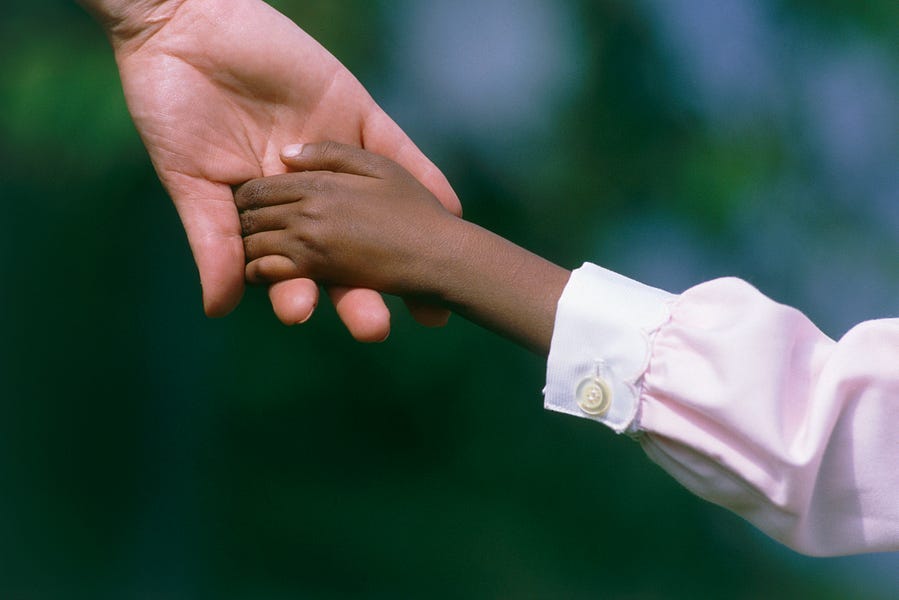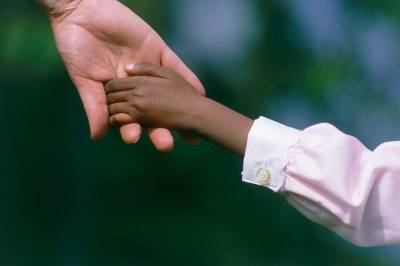What is the real threat of so-called “wokeness”? I’m increasingly convinced the answer varies greatly depending on the spaces where you live, work, and worship. In blue America, wokeness—defined broadly as a particularly zealous commitment to identity politics and/or various versions of critical race theory—can lead to intolerance and censorship.
In red America, by contrast, the challenge of “wokeness” is far different. In red America, the mere allegation of wokeness can often close minds and hearts. “Woke” is treated as a synonym for “wrong,” yet the definition of “woke” is increasingly imprecise and often tied to anything that challenges conservative conventional political wisdom, especially on matters of race.
In fact, fear of wokeness and “woke” ideas is leading legislature after legislature to consider (and sometimes pass) broad bills that claim to ban indoctrination into critical race theory but instead often function as unconstitutional speech codes, punishing a broad range of protected speech.
Call something “woke,” and too many Americans wall themselves off from engagement and reflexively oppose ideas that should be carefully considered.
And that brings us to a topic that’s near and dear to my heart: transracial adoption. Last week Bethany Christian Services, America’s largest Protestant foster care and adoption agency, came under fire for the contents of a report that urged changes to a law called the Multi-Ethnic Placement Act (MEPA).
Broadly speaking, MEPA prohibits racial discrimination in placing kids for foster care or adoption. It rests on important moral and pragmatic principles—families should not be defined by skin color, and unnecessary obstacles to foster parenting and adoption leave too many vulnerable children languishing in substandard care.
Bethany’s report is called “What the Pandemic Taught Us,” and it’s a fascinating document. If you’re interested in adoption and foster care, I’d urge you to read the entire thing. Most of its contents weren’t controversial, but one segment ignited outrage. On page 18, it made the following argument:
The Multi-Ethnic Placement Act of 1994, as amended by the Interethnic Placement Act (IEPA) of 1996, intended to remove barriers to adoption for children of color in foster care by prohibiting a child or family’s race from being a factor in placement. While well-intentioned, MEPA has substantively failed to achieve its stated intent since a disproportionate number of children of color continue to linger in foster care. This law also prevents social workers from ensuring the protection and support of Black children’s cultural heritage within their temporary or permanent homes. Further, it prevents professional social workers from assessing whether a family is unqualified or unprepared to appropriately parent a child of another race and prohibits child welfare professional[s] from offering families additional trans-racial parenting training.
The statement largely speaks for itself, but let me translate it into simple terms. Bethany argues that current law is failing in its practical application and suffers moral flaws as well. MEPA has not solved the problem of a disproportionate number of children of color in foster care, and its legal requirements are setting up families for unnecessary struggles.
Its senior vice president for domestic programs, Cheri Williams, told Religion News Service Reporter Bob Smietana that the current law goes too far towards mandating a “colorblind” approach to adoption. “We’re not saying there needs to be some type of ‘woke’ test,” Williams said. “What we are saying is, it’s very harmful to children to go into this situation with a colorblind philosophy.”
Bethany’s alternative to the colorblind approach isn’t to end transracial adoption. Rather it’s to permit agencies to “consider the cultural, ethnic, or racial background of the child and the capacity of the prospective foster or adoptive parent to meet the needs of such background” as one of the many factors in foster and adoptive placements. In fact, this very language used to be in MEPA until the law was amended in 1996.
The agency also suggested the social workers should be required to “assess a resource family’s ability to effectively parent transracially” and “provide additional training to families who may be well-intentioned but not yet equipped to parent transracially.”
Put in plain English, this means that Bethany supports explicitly considering whether parents are prepared to meet unique challenges inherent in transracial adoption. Its position, if adopted, would increase the liberty of the adoption agency. It would neither ban nor create legal obstacles for transracial adoption.
Nevertheless, people I respect condemned the agency. The American Enterprise Institute’s Naomi Schaefer Riley wrote that “wokeness has come for adoption.” In his Briefing, Al Mohler said Bethany’s decision was “basically the influence of critical race theory coming into the realm of adoption and foster care.” My friend Erick Erickson tweeted Riley’s essay and described Bethany’s position as capitulation to the “Neo-racist wokes of Woke-O Haram.”
In their critiques both Riley and Mohler referenced the Christian agency’s recent decision to start serving LGBT families as part of a trend of the agency’s move to the left.
Yet as a proud parent of an adopted black daughter (as most readers know, our beautiful youngest daughter is from Ethiopia), I agree with Bethany that it can be harmful to children for parents to walk into adoption with a purely colorblind philosophy. As much as we might want to live in a world where race doesn’t matter, and we’re all one human family, it’s a simple fact that children of color face different challenges from white children as they navigate our culture and as they’re raised in white families.
And while I’m a firm supporter of transracial adoption, I also think that a true “best interests of the child” adoption standard should include an analysis of whether the family is thoughtfully approaching the unique challenges that will face their adopted kids.
This isn’t critical race theory. This is life. This is experience. You can try to be as colorblind as you want, but your child will not be. He or she will be keenly aware of his or her differences. Your community will not be. And it is on the parents to prayerfully and carefully prepare for this reality. We do not yet live Martin Luther King’s “content of your character” dream, and while we do not, it is imperative to prepare parents for the world as it is.
I’m not going to go into all the facts of our family’s story. I went into deep detail in 2018 in a long essay in The Atlantic. I repeated much of that history last year in a Sunday French Press. The short version is that we’ve faced everything but a colorblind reality. First, from the left we faced public accusations that white Republicans were ill-suited to raise a black child. Then, from the alt-right, came a hurricane of racist abuse aimed directly at our daughter. And ever since Naomi came home, she’s periodically faced the everyday racism that so many Black Americans endure.
Both my wife and I are public figures of a sort, so our experience isn’t universal. Our profile exposes our family to an unusual level of attention and attacks. But the racist attacks on Naomi are among the most shattering and traumatic things we’ve experienced as a family.
And outright racism is a separate challenge from different kinds of ordinary realities. How do you introduce your kid to race when they ask—at a very young age—why they look so different from their parents and siblings? What’s your plan to take care of a black girl’s hair? (If you don’t think that’s very important, you’ve already got a lot to learn.) I could go on and on with examples of how you need to intentionally and deliberately ready yourself to be a white parent of a nonwhite child.
I don’t have all the answers. I’m learning. We’re all learning. We approach these issues with increasing humility. This is very hard stuff, but I know this: The absolute last thing I want to do is to write off as “woke” suggested reforms from Christian experts who work with thousands upon thousands of multi-racial families, even if those reforms might challenge my ideals.
In Smietana’s article, Bethany described the “outcry” from families who wanted help talking about race with their children. I’ve also spoken to many adoptive families who’ve struggled to answer their kids’ questions and struggled to navigate a challenging cultural and political environment without the first-hand experiences that (sadly) come naturally to many of America’s black and brown families.
I’ve even seen obstinate, ideological families cause real harm to their own children, in part through sheer indifference to cultural distinctives and community norms.
To acknowledge these realities is not to disparage transracial adoption. We love our kids more than we love our own lives—which is why so many of us want so desperately to be properly educated and prepared. We want other parents to be prepared as well.
Schaefer said she believes Bethany “want(s) people to feel bad about transracial adoption.” But I don’t think that’s quite fair. The multiracial families who support Bethany certainly don’t perceive this hostility. I don’t perceive this hostility. Its proposals deserve careful consideration.
I know all of this seems a bit niche, an argument about an issue that affects only a small minority of American families. Yet it’s important nonetheless, for reasons that extend beyond the adoption community. The word “woke” is not a synonym for wrong—especially in a culture that weaponizes words to reinforce tribal alignments.
In fact, in white Evangelicalism the true challenge of “wokeness” isn’t that congregations will embrace critical race theory, it’s that fear of critical race theory will drive congregations away from thoughtful, necessary engagements with the world as it is—a world that is still too far removed from the hope of King’s dream.
One last thing …
Hannah McClure’s voice is beautiful, and so is this song. Happy Sunday, readers. May God bless you today and every day.







Please note that we at The Dispatch hold ourselves, our work, and our commenters to a higher standard than other places on the internet. We welcome comments that foster genuine debate or discussion—including comments critical of us or our work—but responses that include ad hominem attacks on fellow Dispatch members or are intended to stoke fear and anger may be moderated.
With your membership, you only have the ability to comment on The Morning Dispatch articles. Consider upgrading to join the conversation everywhere.